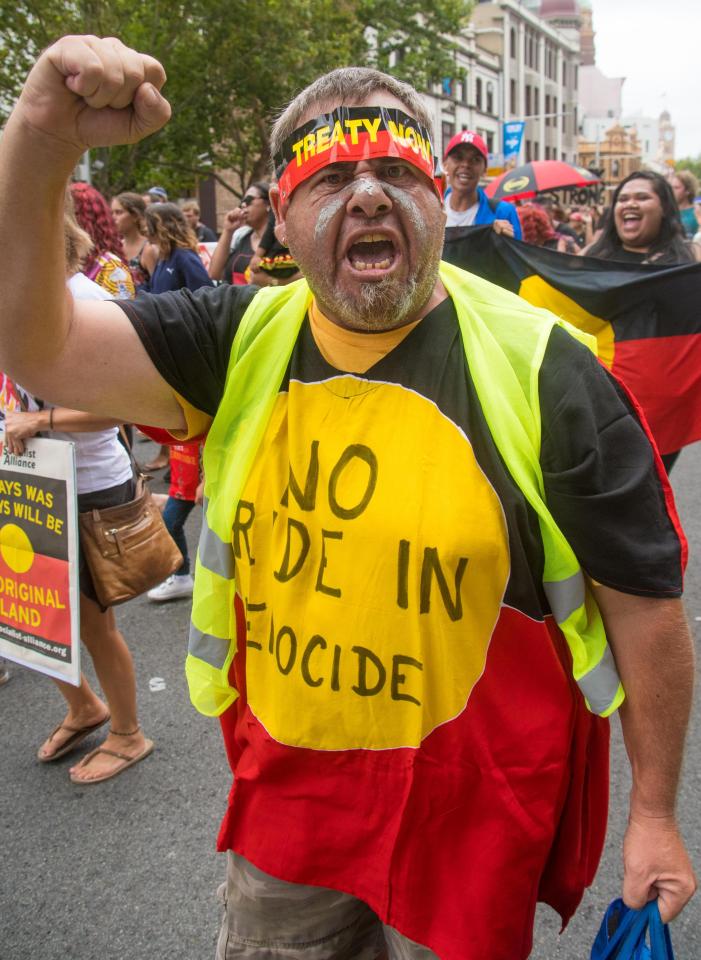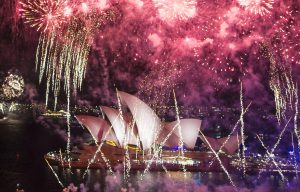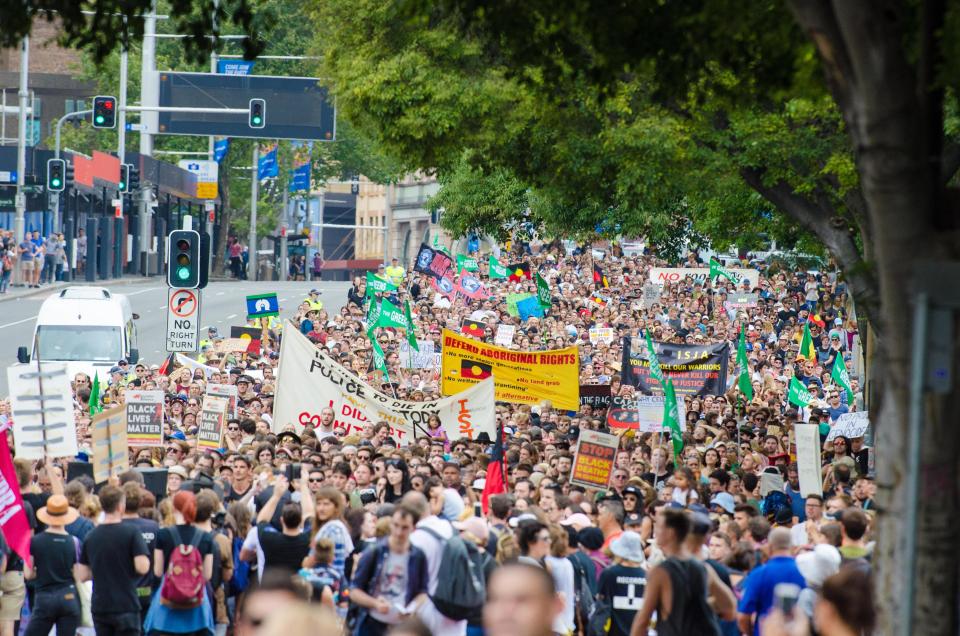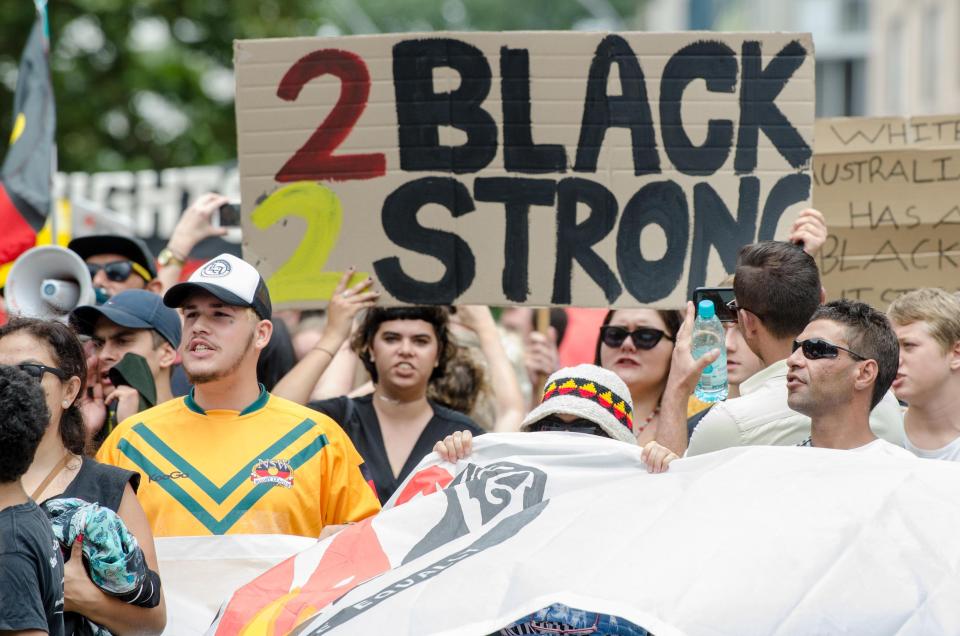VIOLENCE flared between police and those protesting Australia's so-called 'Invasion Day' after a man was spotted trying to set fire to the country's flag.
Protesters draped in Aboriginal flags marched through Sydney on Australia Day branding the arrival of the first white settlers in 1788 as the day when the 'killing started'.
Tens of thousands joined the march calling for the date of Australia Day - January 26 - to be changed as it celebrates the arrival of white settlers and the beginning of injustices suffered by the country's disadvantaged Aborigines.
Protesters - many wearing the black, yellow and red colours of the aboriginal flag - gathered in Melbourne, while thousands more took to the streets of Sydney, Brisbane, Adelaide and Perth.
For many Aborigines, who trace their lineage on the island continent back 50,000 years, January 26 is 'Invasion Day'.
They say it marks the anniversary of the beginning of British colonisation of their lands and their brutal subjugation.
Although, most protesters were peaceful, trouble flared when one man was seen setting fire to the Australian flag.
Shocking footage also shows an officer grabbing a protester around the waist and pushing him to the ground as another leaps at his face with smoke surrounding them.
Other clips show police surging into the crowds to combat any more outbreaks of trouble.
It is claimed officers also sprayed some kind of tear gas into the crowds.
Police said they were questioning a 20-year-old in relation to an 'isolated incident in an otherwise peaceful demonstration'.
One officer was injured in the alleged scuffle and has been taken to hospital, according to ABC News
Related Stories
New South Wales Premier Gladys Berejiklian denounced the violence and said she was 'disappointed' with the day's proceedings.
"We have a democracy and everyone has a right to protest, but today is celebrating everything that brings us together, and I think most people would feel extremely disappointed at what they have seen today," she said.
Others told why they were taking part in the protests.
"I'm here to commemorate all the aboriginal people who were murdered during the first stage of settlement," protester Neville Scarlett told The Age.
Prime Minister Malcolm Turnbull said he did not support changing the date of Australia Day, which is celebrated as a public holiday with festivities from fireworks over Sydney Harbour and citizenship events to ancient aboriginal ceremonies.
"Everyone is entitled to a point of view but I think most Australians accept January 26 as Australia Day," Turnbull told reporters.
The protests come at a time when right-wing nationalist politics is on the rise in Australia, similar to the United States and Europe, and there is little political appetite to tackle aboriginal rights issue.
Aborigines only gained citizenship in 1967 and a vote on whether to recognise Aborigines in the constitution as the country's first people has been on hold for years.
Australia's 700,000 or so indigenous Aboriginal and Torres Strait Islander people still struggle with the impacts of colonisation and track near the bottom of the country's 23 million citizens in almost every economic and social indicator.
Aborigines face a 10-year gap in life expectancy compared with other Australians and make up 27 percent of the prison population, but are just three percent of the population.
















